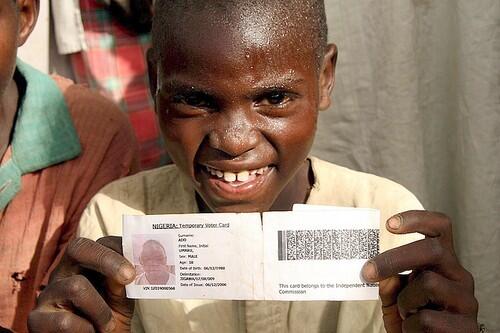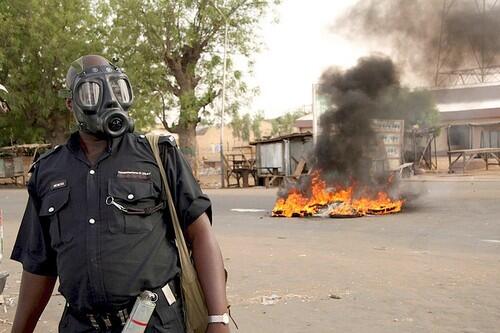
A Nigerian policeman wearing a gas mask walks on a road after police fired tear gas to ward off groups of disgruntled opposition supporters. Bands of young men and boys - supporters of the opposition All Nigeria Peoples’ Party - took to the streets in northern Nigeria armed with machetes, clubs and rocks to protest alleged vote rigging by the ruling People’s Democratic Party (Tugela Ridley / EPA)
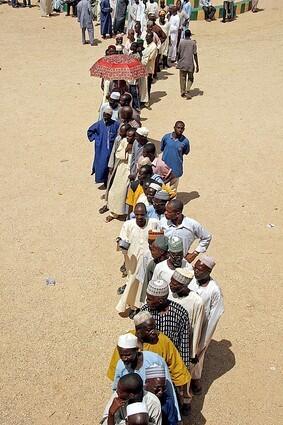
Nigerian men queue to vote in presidential elections at a polling station in northern Nigeria. More than 60 million registered Nigerian voters in Africa’s most populous country headed to the polls Saturday to vote for a new president, marking the first post-colonial transfer of power between two civilian presidents. (Tugela Ridley / EPA)
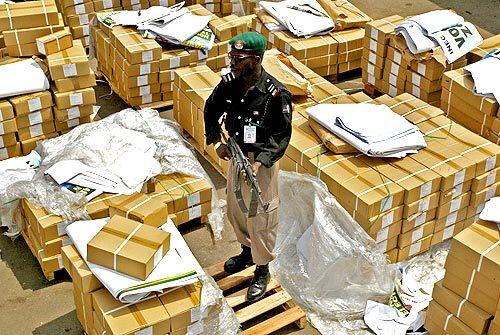
A Nigerian soldier provides security at an Election Commission office in the city of Lagos, Nigeria. (Sunday Alamba / AP)
Advertisement
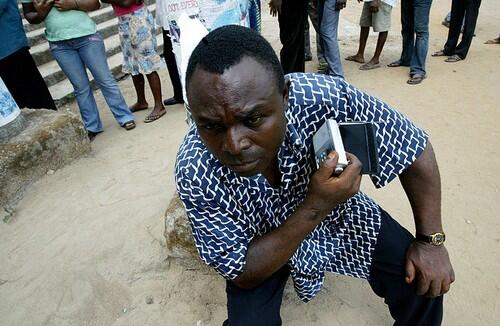
A man listens to a transistor radio as he waits to cast his vote during presidential elections in Lagos, Nigeria. A truck bomb aimed at electoral commission headquarters ran into barriers and failed to explode hours before the start of a Nigerian presidential vote already shadowed by violence, charges of fraud and a last-minute ballot hitch. (Sunday Alamba / AP)
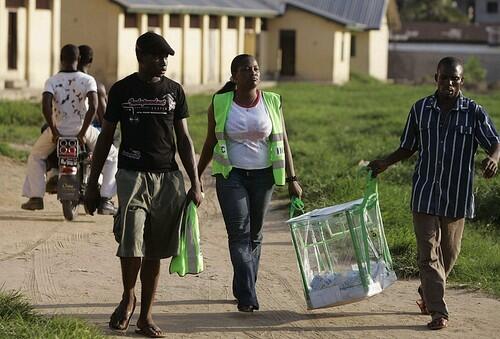
Elections officials walk to a ballot collection point in the city of Port Harcourt, Nigeria. (Schalk van Zuydam / AP)
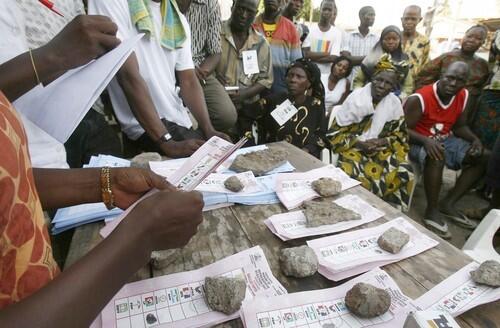
Election officials organize ballots in Lagos, Nigeria. Ballot box chaos, killings and a truck-bomb aimed at Nigeria’s electoral commission marred the country’s first electoral bid for a civilian-to-civilian transfer of power since its independence almost five decades ago. (Issouf Sanogo / AFP/GETTY)
